Iran Can Thwart US Sanctions Via Shanghai Organization

Iranian President Ebrahim Raisi said on Friday that the Shanghai Cooperation Organization (SCO) can help thwart “US unilateralism” and solve the problems created by sanctions.

Iranian President Ebrahim Raisi said on Friday that the Shanghai Cooperation Organization (SCO) can help thwart “US unilateralism” and solve the problems created by sanctions.
Raisi made the remarks during his meeting with his Chinese counterpart Xi Jinping on the sidelines of the SCO summit in the Uzbek city of Samarkand on Friday, adding that "the Islamic Republic has not been and won't be stopped despite all the enmities, and will not give up in the face of US' bullying."
During the summit, he reiterated that foiling "draconian" US sanctions required new solutions, stressing the need for expanding the central Asian security organization.
Raisi also called for expanding free trade among SCO member countries, alongside financial and banking cooperation, noting that Tehran and Beijing have enormous capacities in the fields of oil and energy, transit, agriculture, and trade.
Xi, for his part, pointed out that the longstanding friendship of China and Iran have stood the test of a changing international landscape, adding that their common strategic choice is consolidating and growing their comprehensive partnership.
The two sides should make active efforts to implement their 25-year comprehensive cooperation plan, advance China’s Belt and Road initiative -- a global infrastructure development strategy by the Chinese government to invest in various countries -- and strive for more deliverables of cooperation, Xinhua quoted Xi as saying.
Tehran, which seeks to overcome economic isolation imposed by US sanctions, on Thursday signed a memorandum of obligations to become a permanent member of the SCO, formed in 2001 as a talking shop for Russia, China and ex-Soviet states in Central Asia, and expanded four years ago to include India and Pakistan.
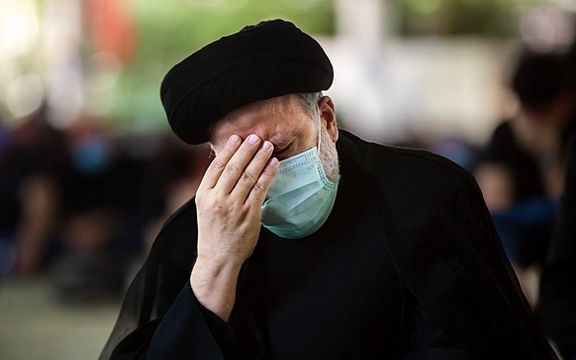
Days before Iran’s president is scheduled to attend the UN General Assembly, three former prisoners in Iran are launching a civil lawsuit against him in New York.
The hardliner president Ebrahim Raisi’s scheduled trip to the United States, together with a large entourage, has been the subject of controversy. Human rights activists, Iranian dissidents, former political prisoners and hostages in Iran have urged the Biden administration not to issue a visa to Raisi.
Raisi served as Iran’s Judiciary chief before becoming president in August 2021, but he spent most of life in the Islamic judiciary and is accused by human rights groups of taking part in gross violations of human rights. He was a member of a death committee that ordered the killing of thousands of political prisoners in 1988, an involvement he has proudly admitted.
The US sanctioned him, along with other Iranian officials in 2019 for human rights violations.
A former prisoner in Iran, Mehdi Hajati and two former hostages, Hamid Babaei and Australian-British academic Kylie Moore-Gilbert, who was held hostage for two years in Iran announced Thursday that they will launch a civil lawsuit.
The National Union for Democracy in Iran (NUFDI), an American Iranian advocacy group is assisting the plaintiffs in their legal action. NUFDI said in a statement that human rights attorney Shahin Milani will represent the three plaintiffs.
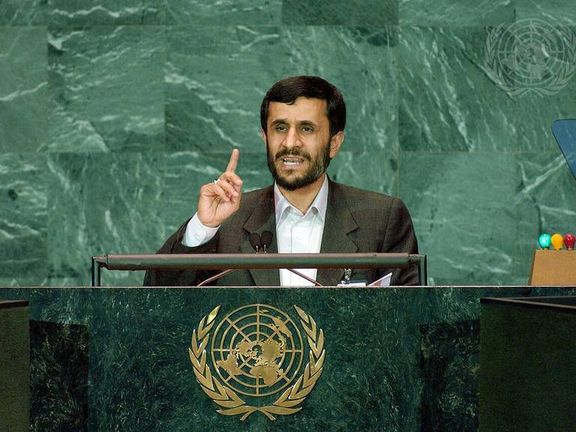
Mehdi Hajati was an elected local official in the Iranian city of Shiraz who was sentenced to prison for his defense of the persecuted Baha’i community in 2019. Hamid Babaei, a resident of Belgium was also held hostage in Iran.
Moore-Gilbert, a lecturer in Islamic studies at the University of Melbourne was arrested on bogus charges in Iran in September 2018 and held until November 2020, when she was exchanged with Iranians jailed in Thailand on terrorism convictions. They received a hero’s welcome upon their return to Iran.
A bipartisan group of 52 US lawmakers urged President Joe Biden on September 9 to deny visas for Raisi and his delegation.
"The United States cannot overlook Ebrahim Raisi’s direct involvement in gross violations of internationally recognized human rights, including the 1988 organized mass murder of thousands of political prisoners, among whom were women and children, by the Iranian regime,” the lawmakers wrote to Biden.
So far the Biden Administration appears to be determined to issue the visas, arguing that it is legally obligated as host nation of the United Nations to allow officials of other government to conduct their UN business in New York.
Critics who urge a visa denial say that “As the host country for UN headquarters, the United States has a general obligation to grant visas to those conducting UN business. However, as lawmakers noted in their letters to Biden, U.S. law authorizes a denial of visas to individuals responsible for torture and extrajudicial killings.” They cite the example of Austrian President Kurt Waldheim who was denied entry into the US in 1987 for his responsibility for the persecution of Jews and others during World War II.
Iranian Americans have organized a protest outside the UN headquarters in New York City on September 21, the day Raisi is scheduled to speak at the General Assembly and at the same time NUFDI will unveil the details of the lawsuit against him.
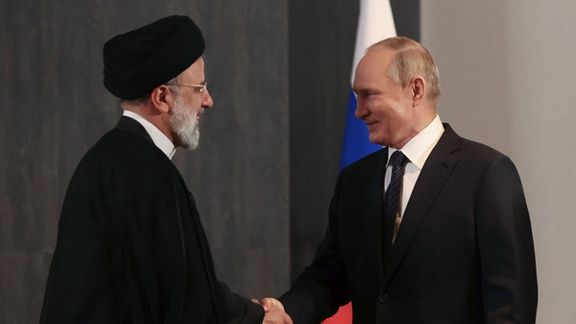
Relations between Tehran and Moscow are strategic and Tehran aims to boost ties at all levels, Iran's president said Thursday in a meeting with Vladimir Putin.
On the sidelines of the Shanghai Cooperation Organization (SCO) summit in the Uzbek city of Samarkand Thursday,President Ebrahim Raisi assured his Russian counterpartthat Tehran will never recognize the sanctions against Russia and will strengthen and develop its trade and economic relations with Moscow.
“Our relations are not ordinary; they are of a strategic nature. Iran wishes to expand its strategic relations with Russia and all political, economic, trade, and aerospace areas,” he told the Russian President. Raisi Also stressed that Tehran- Moscow cooperation can “neutralize” the effects of US sanctions on both countries.
President Raisi and his government consider relations with Moscow and Beijing and Iran’s full membership in SCO a powerful tool in overcoming US sanctions and their effects which have hugely affected the Iranian economy since 2018 when former US President Donald Trump pulled out of the 2015 nuclear agreement (JCPOA) and slapped crippling sanctions on the country.
"The relationship between countries that are sanctioned by the US, such as Iran, Russia or other countries, can overcome many problems and issues and make them stronger," Raisi told Putin in the meeting.
"The Americans think whichever country they impose sanctions on, it will be stopped, their perception is a wrong one."
That is exactly what critics of the Biden Administration policy of reviving the JCPOA argue. Freeing Iran from US sanctions will open a back door for Russia to violate Western sanctions imposed on its energy exports and international banking. Already the two countries have deals for natural gas and oil swaps, which can help disguise Russian energy exports.
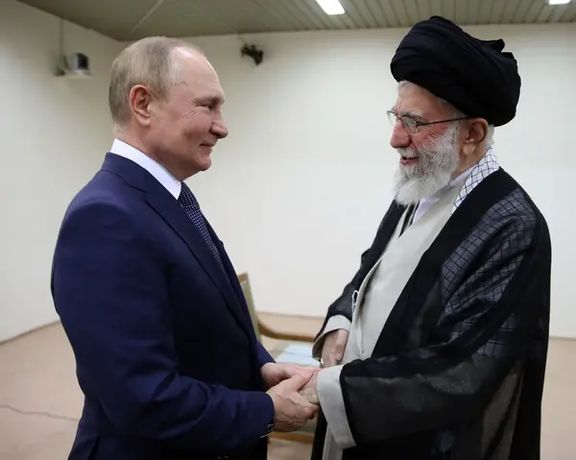
Iran has also supported Russia's invasion of Ukraine and has delivered military drones to Moscow. Recent images from Ukraine show Iranian suicide drones being used in the war.
For his part, Putin announced in the meeting that a Russian delegation of 80 large companies are to visit Tehran next week now that Iran has signed documents pertaining to full membership in SCO.
The Russian President said Tehran and Moscow actively cooperate on the international arena and their positions “coincide” on many issues. He added that many joint projects are moving forward “thanks to Supreme Leader Ali Khamenei’s support.” “We are interested in his further support,” he said.
Referring to Iran’s membership in SCO, Iranian foreign ministry spokesman Nasser Kanaani said in a tweet Wednesday that Iran “acts dynamically, intelligently and balanced in realizing the strategic goals of its foreign policy and expanding its foreign relations” but “does not wait for the JCPOA and the return of the United States to its JCPOA commitment” despite adhering to the talks for the restoration of the deal.
The SCO summit which brings together leaders of China, Russia, India, Pakistan and four ex-Soviet Central Asian countries together will ends on Friday. The Eurasian political, economic and security organization was founded by China, Russia, and four former Soviet republics in 2001 and has since expanded its membership to include India and Pakistan.
SCO approved Iran's application for accession last year at a conference in Dushanbe, Tajikistan, in September after many years of a slow process.
In a tweet Wednesday, Foreign Minister Hossein Amir-Abdollahian who is accompanying the president said he had signed a memorandum of commitments to join the organization as a full member, calling a "new phase" of economic, trade, transit, energy, and other cooperation with the body.
According to SCO deputy secretary-general Grigory Logvinov, it may take some time for Iran to complete the accession procedure.
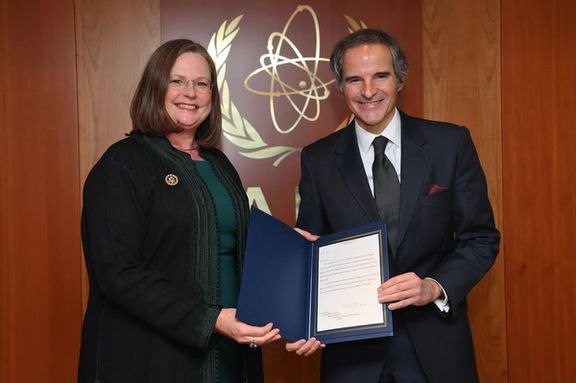
The US Mission to the UN has reiterated that Iran must provide technically credible explanations for the presence of uranium particles detected at three undeclared locations.
“The United States expresses our sincere appreciation for the continued professional and impartial efforts of the Agency [IAEA] to implement Iran’s Comprehensive Safeguards Agreement,” read the US Statement as delivered by Laura S.H. Holgate, the US envoy to international organizations in Vienna on Wednesday.
“We commend the Director General for his extensive efforts to engage Iran on the need to clarify and resolve the Agency’s longstanding concerns related to the presence of uranium particles of anthropogenic origin at three undeclared locations in Iran – Turquzabad, Varamin, and Marivan,” it added.
Emphasizing that “the path towards clarifying and resolving these issues is neither complicated nor never-ending,” the US mission said Iran must inform the IAEA about the current location of the detected nuclear material and/or contaminated equipment.” “The power to resolve these issues is in Iran’s hands.”
On Thursday, Rep. Claudia Tenney (D-NY) said that a resolution to demand documents from the Biden Administration related to nuclear talks with Iran failed to pass the House Foreign Affairs Committee.
“This morning…Democrats blocked efforts to pass resolutions of inquiry (also known as an ROI) to require the Biden Administration to turn over documents related to the Afghanistan withdrawal as well as ongoing nuclear talks with Iran.”
“Instead, House Democrats on the Foreign Affairs Committee prevented both the Afghanistan and Iran requests from moving forward. It was a shameful abdication of their oversight responsibilities to the American people,” she added.
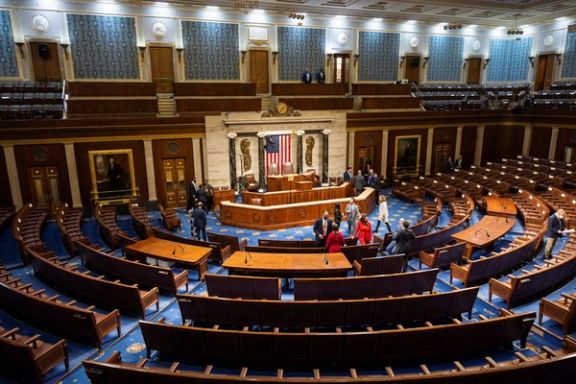
A bipartisan group of the US House lawmakers are set to introduce legislation Thursday that would solidify Washington’s sanctions against Iran no matter the result of nuclear talks.
According to Fox News on Thursday, the legislation, titled the Solidify Iran Sanctions Act (SISA), would create a necessary deterrent by targeting the country's energy sector and making it more difficult to finance terrorist operations or develop ballistic missiles.
Republican Representative Michelle Steel from California, who is leading the bill in the House, said that "From brutal abuses committed against its own people, to its never-ending threats towards free and democratic societies, the Iranian regime has proven time and again that they are a rogue state with no interest in preserving regional or global peace.”
Stressing the need to prevent “the unacceptable threat of a nuclear Iran from becoming a reality,” he said, “Existing sanctions have proven successful in preventing such a catastrophe, and we must ensure that we can continue to place economic and strategic pressures on Iran to prevent them from developing nuclear weapons or supporting terrorists.”
Steel said he is cooperating with Senator Tim Scott (R-SC) on this issue to lead the bipartisan group in the House on the bill, which would require the "imposition of sanctions with respect to Iran’s illicit weapons programs, conventional weapons and ballistic missile development, and support for terrorism, including Iran’s Revolutionary Guards Corps (IRGC)."
Last month, Scott, along with several other senators, introduced the Senate version of the legislation, designed to make the Iran Sanctions Act of 1996 permanent.

A 22-year-old Iranian woman, identified as Mahsa Amini, died Friday after being severely beaten in the head by the Islamic Republic’s “morality” police.
The Islamic Republic’s police told Iranian media that Amini suffered a heart attack while detained by morality police, denying reports that she had been beaten.
Iran International has learned that Amini was not feeling well and had symptoms similar to concussion when she was taken to the Vozara detention center, where the morality police take all those arrested across the capital Tehran.

According to reports, the young girl – originally from Saqqez in Kurdistan province -- was visiting her relatives with her family in Tehran when she was arrested on Tuesday evening by hijab enforcement officers.
After protest by Mahsa's brother, who was with her when she was arrested, the officers said that they would take her to the Vozara street detentions center for a "briefing class" and will be released after an hour.
Her uncle said on Thursday that his niece’s heart was not functioning properly and her kidneys had failed, adding that her doctors told the family that they cannot do anything for her.
In recent months government and security agencies have intensified their efforts to pressure women into abiding by the hijab laws and several rounds of anti-hijab civil disobedience campaigns have followed.
Patrols by ‘morality police’ have increased on the streets and videos of violent arrests of women and girls as well as confrontations between people and hijab enforcers.